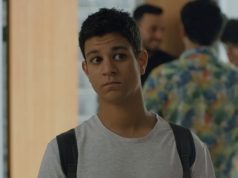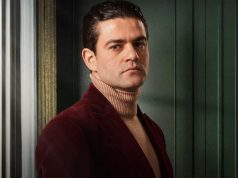Palestinian director Ameen Nayfeh talks to us about his award-winning film 200 Meters. The film was premiered at the 77th Venice International Film Festival where it won the BNL People’s Choice Audience Award and was shown at the El Gouna Film Festival.
By Mariam Elhamy
Did you ever suspect that your film will create this huge buzz and be featured at more than one film festival?
There was hope for this of course, but the amazing buzz, selection for many prestigious festivals, and all these awards came as beautiful surprises.
This is a very emotional and sensitive topic. Did you have any dubiousness about choosing this topic?
It was about the forced separation from the start, and actually my personal background in relation to the story was the driving force of why I wanted to tell this story.
After seeing the huge success of this film, do you believe it will contribute to the cause or make a big change?
My dream was to tell this story and to make it reach as many people as I can, the success is amazing and overwhelming and makes me very proud that we were persistent to tell this story.
What films have been the most inspiring or influential to you and why?
The films from Ken Loach, the Dardenne brothers and Asghar Farhadi. Simply because I love the cinema that they produce and the subjects of working-class, ordinary people, people from the street that they talk about and I always get moved by the human stories and their complexities.
What was the most challenging thing you had to pull off during the making of this film?
The biggest challenge was to shoot the film in 22 days because that was the maximum number of days that our production could afford. Can you imagine shooting a road film in more than 35 locations in just 22 days! So, yes it was really challenging.
The other difficulty was that I wanted to shoot in real locations like next to the wall and real checkpoints, and that was also a big adventure because you can not get a permit to film there so we had to make very smart plans to make it work.
Were there any scenes that left you feeling too emotional?
Of course! Actually, they were many scenes especially those that we shot next to the wall and the checkpoints. Also, there was a particular scene that I will not spoil for the audience that made my tears fall down during filming the first take. But, then again the editing was getting emotional as well!
Did you find the feedback you were expecting from the audience?
The feedback has been extraordinary so far. I am so moved by the reception of the audience and all the Q&As that I had the luck to witness had been very interesting.
What I like the most is that many people came to me saying that they rarely get emotional watching films especially political ones but this film made their hearts twitch and many also told me that they finally understand what the wall represents in the Palestinian daily life.





